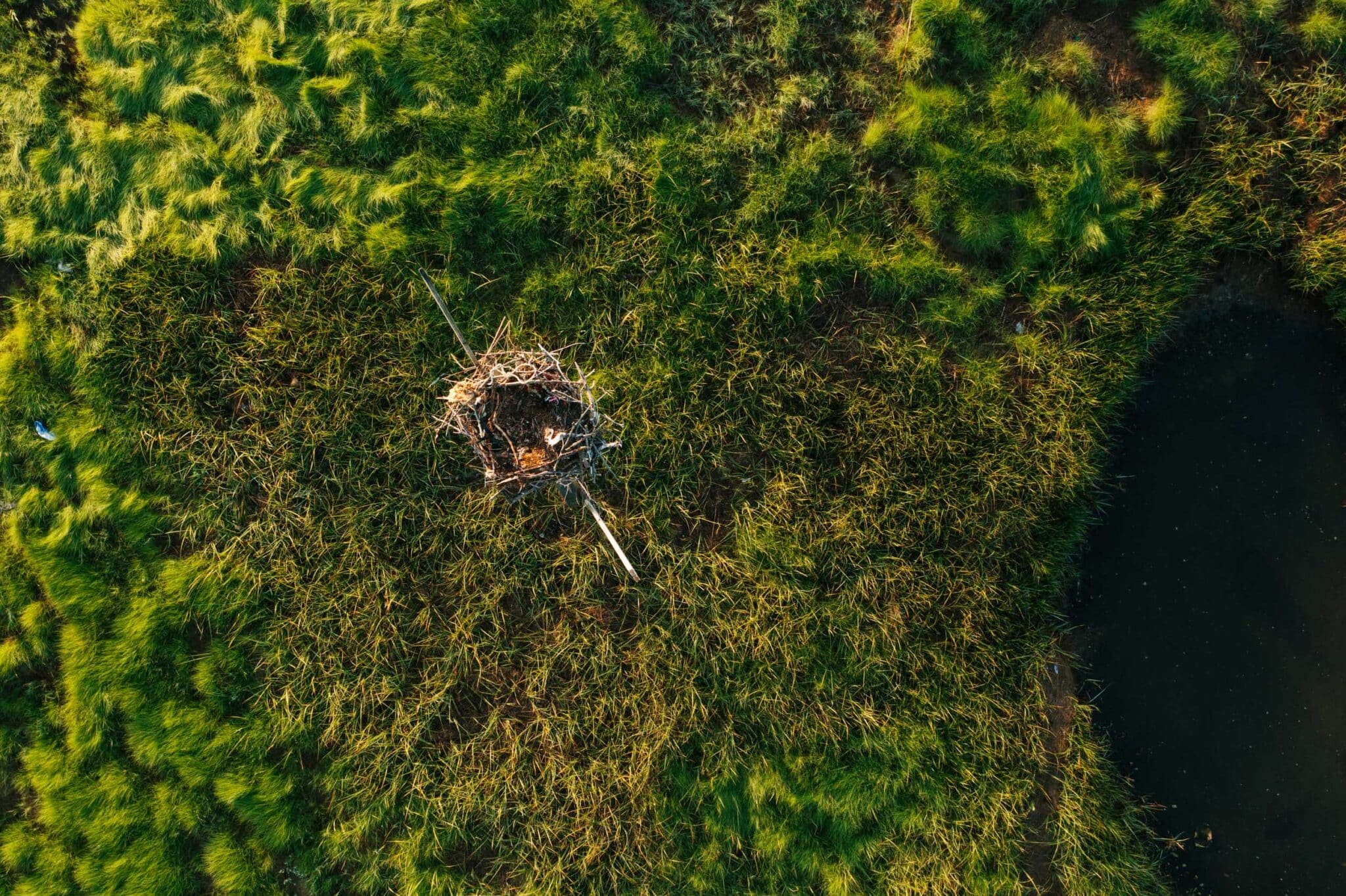Unusual Year for Breeding Ospreys in New Jersey

So far it has been an usual year for nesting osprey in New Jersey. This spring, the pair that has nested at our osprey cam in Barnegat Light, who arrived on time, the female did not lay any eggs. Then I heard from a woman who watches a nest near the southern end of Long Beach Island who reported the same — pair present but incubation was never observed. Another report came in from an osprey nest watcher on the Mullica River (to the southwest of LBI) who reported the same — no incubation observed. We put out a call on social media for osprey nest watchers to report anything odd like this to us (while also reporting osprey nest activity online via Osprey-watch.org). Some people reported seeing the same behavior..
After seeing and hearing similar reports from nest watchers, we set out on an early season osprey nest survey during the first week of June. This was to get a glimpse of how widespread this might be. The colony we surveyed was between Barnegat Light and Holgate, on Barnegat Bay. A total of 29 occupied nests were surveyed. Of those, 16 were still incubating (#11) or had hatchling aged (2-5 days old) young (#5). The rest had pairs present but no eggs or young. The majority of these nests in previous years (besides the past two) typically produced at least 1-2 young, with the occasional nest that failed (no young produced). It is usual to see so many with no eggs or young.






As I typed an email to ask questions about what could cause this and if any odd was occurring in their colonies, before I hit send I got an email on the same exact subject! From Bryan Watts with the Center for Conservation Biology: “Our season down here is an unusual one with 1) unusually large numbers of pairs not laying clutches at all, 2) the ones that did lay are very late compared to previous years and 3) shift to smaller clutches. Pair arrival was normal but some did not lay until 2 to 2.5 months after arrival. We have had some clutches laid over the past 2 weeks which is very late for us.
Right now, we are all perplexed and are looking for answers to our questions, as to why healthy, breeding age ospreys are not reproducing. Is some sort of contaminant impacting their reproduction? Is it some unknown pathogen? A likely cause could be lack of food but we haven’t seen widespread lack of Atlantic menhaden like the last two years. Daisy and Duke at our osprey cam in Barnegat Light have shown no shortage of menhaden, with both catching plenty of their own. A local commercial bait fisherman also reported plenty of adult menhaden offshore this year. More widespread surveys by volunteers of nesting ospreys have already begun and we hope to learn what is going on this year.
With the pending status change for ospreys from threatened to stable, they will still require management, since the majority nest on man-made nest platforms; and monitoring, to look for changes in their productivity from year to year. CWF is committed to continuing our grassroots conservation efforts with ospreys to ensure that they remain stable in the future. We thank all of our devoted volunteers, partners, and donors for their continued support of our mission and work with ospreys! ❤️
Discover more from Conserve Wildlife Foundation of NJ
Subscribe to get the latest posts sent to your email.